Top Rankings
Ellenville Central School District ranks among the top 20% of public school district in New York for:
Category
Attribute
Diversity
Most diverse schools (Top 1%)
For the 2025 school year, there is 1 public elementary school serving 698 students in Ellenville Central School District. This district's average elementary testing ranking is 1/10, which is in the bottom 50% of public elementary schools in New York.
Public Elementary School in Ellenville Central School District have an average math proficiency score of 21% (versus the New York public elementary school average of 41%), and reading proficiency score of 28% (versus the 48% statewide average).
Minority enrollment is 58% of the student body (majority Hispanic), which is less than the New York public elementary school average of 61% (majority Hispanic).
Overview
This School District
This State (NY)
# Schools
2 Schools
3,702 Schools
# Students
1,393 Students
1,750,092 Students
# Teachers
112 Teachers
153,310 Teachers
Student : Teacher Ratio
12:1
12:1
District Rank
Ellenville Central School District, which is ranked #946 of all 1,015 school districts in New York (based off of combined math and reading proficiency testing data) for the 2021-2022 school year.
The school district's graduation rate of 70-74% has decreased from 75-79% over five school years.
Overall District Rank
#934 out of 1020 school districts
(Bottom 50%)
(Bottom 50%)
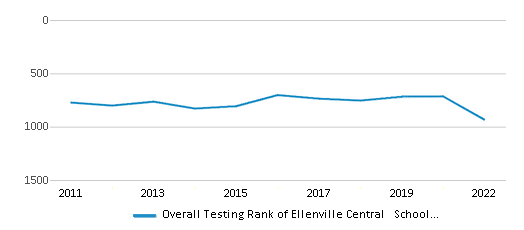
Math Test Scores (% Proficient)
29%
46%
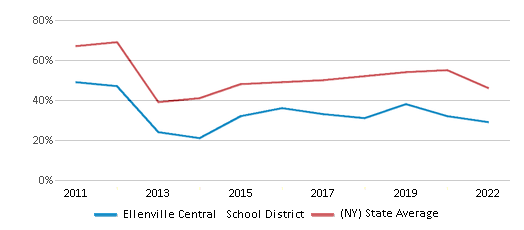
Reading/Language Arts Test Scores (% Proficient)
28%
49%
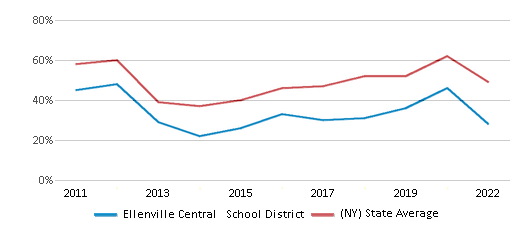
Science Test Scores (% Proficient)
70%
78%
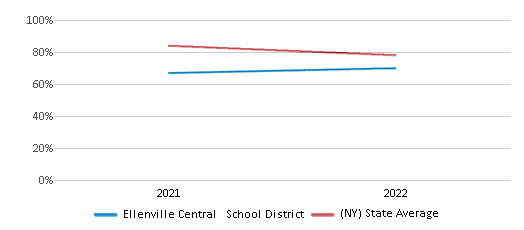
Graduation Rate
70-74%
87%
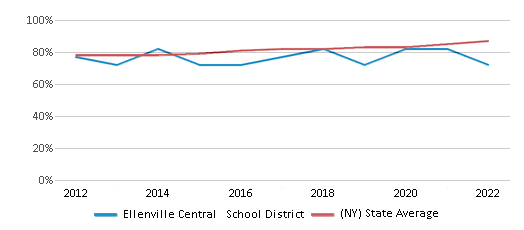
Students by Ethnicity:
Diversity Score
0.65
0.73
# American Indian Students
5 Students
14,013 Students
% American Indian Students
n/a
1%
# Asian Students
27 Students
175,821 Students
% Asian Students
2%
10%
# Hispanic Students
557 Students
531,348 Students
% Hispanic Students
40%
30%
# Black Students
119 Students
278,768 Students
% Black Students
9%
16%
# White Students
596 Students
682,836 Students
% White Students
43%
39%
# Hawaiian Students
n/a
3,810 Students
% Hawaiian Students
n/a
n/a
# Two or more races Students
88 Students
63,556 Students
% of Two or more races Students
6%
4%
Students by Grade:
# Students in PK Grade:
36
60,112
# Students in K Grade:
85
169,096
# Students in 1st Grade:
83
177,074
# Students in 2nd Grade:
85
181,096
# Students in 3rd Grade:
106
177,104
# Students in 4th Grade:
98
180,516
# Students in 5th Grade:
86
181,163
# Students in 6th Grade:
117
184,038
# Students in 7th Grade:
110
161,270
# Students in 8th Grade:
108
161,773
# Students in 9th Grade:
113
24,993
# Students in 10th Grade:
128
23,859
# Students in 11th Grade:
109
21,596
# Students in 12th Grade:
123
21,027
# Ungraded Students:
6
25,375
District Revenue and Spending
The revenue/student of $37,538 is higher than the state median of $31,307. The school district revenue/student has grown by 6% over four school years.
The school district's spending/student of $35,426 is higher than the state median of $32,183. The school district spending/student has grown by 6% over four school years.
Total Revenue
$52 MM
$78,541 MM
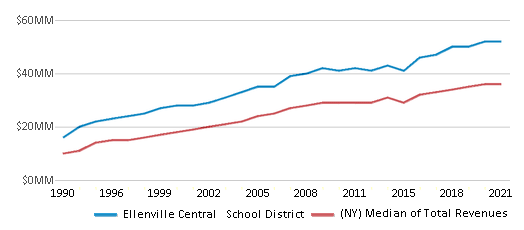
Spending
$49 MM
$80,737 MM
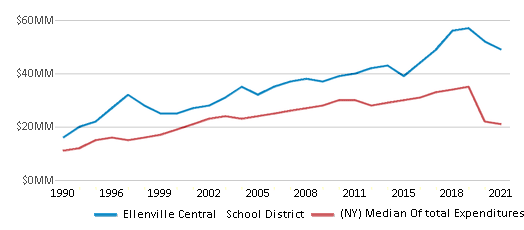
Revenue / Student
$37,538
$31,307
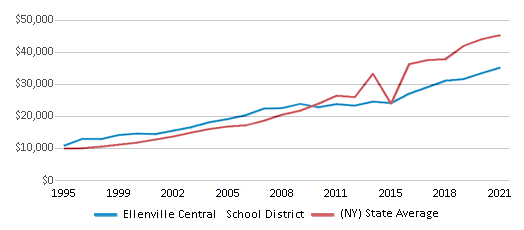
Spending / Student
$35,426
$32,183
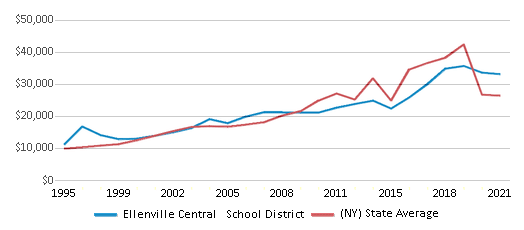
Best Ellenville Central School District Public Elementary Schools (2025)
School
(Math and Reading Proficiency)
(Math and Reading Proficiency)
Location
Grades
Students
Rank: #11.
Ellenville Elementary School
(Math: 21% | Reading: 28%)
Rank:
Rank:
2/
Bottom 50%10
28 Maple Ave
Ellenville, NY 12428
(845) 647-0131
Ellenville, NY 12428
(845) 647-0131
Grades: PK-6
| 698 students
Recent Articles

Year-Round Or Traditional Schedule?
Which is more appropriate for your child? A year-round attendance schedule or traditional schedule? We look at the pros and cons.

Why You Should Encourage Your Child to Join a Sports Team
Participating in team sports has a great many benefits for children, there is no doubt. In this article you will learn what those benefits are.

White Students are Now the Minority in U.S. Public Schools
Increasing birth rates among immigrant families from Asia and Central and South America, combined with lower birth rates among white families, means that for the first time in history, public school students in the United States are majority-minority. This shift in demographics poses difficulties for schools as they work to accommodate children of varying language abilities and socio-economic backgrounds.





